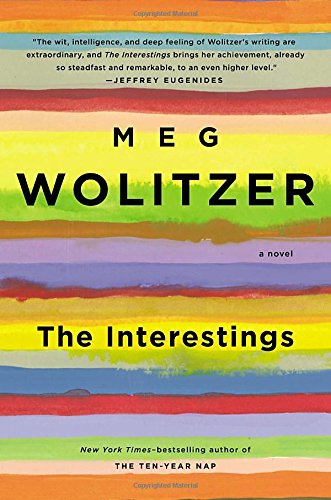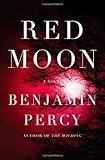

 Novels that venture into the minds of multiple characters, or sprawl into a number of different eras, satisfy the greedy reader in me; I want as much access to the writer’s fictional world as I can get my hands on. I still recall the scene of Levin with his scythe, nestled like a secret beneath many pages of Anna Karenina — ahh, I thought, what a kaleidoscopic universe Tolstoy is offering me. This access is partly why I loved The Interestings by Meg Wolitzer, and why I’m looking forward to tucking into Benjamin Percy’s Red Moon. (See also: my love for The Wire, or for gossip.) Tell me everything, that’s my motto.
Novels that venture into the minds of multiple characters, or sprawl into a number of different eras, satisfy the greedy reader in me; I want as much access to the writer’s fictional world as I can get my hands on. I still recall the scene of Levin with his scythe, nestled like a secret beneath many pages of Anna Karenina — ahh, I thought, what a kaleidoscopic universe Tolstoy is offering me. This access is partly why I loved The Interestings by Meg Wolitzer, and why I’m looking forward to tucking into Benjamin Percy’s Red Moon. (See also: my love for The Wire, or for gossip.) Tell me everything, that’s my motto.
Or that’s my motto…sometimes. I also like a svelte novel with a narrow aperture, its focus sharp and expert. These books venture immeasurably inward. Sometimes a single character’s story, told under the constricts of a clearly delineated span of time, reveals something deep and startling. It’s why The Great Gatsby persists.
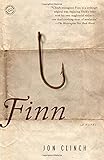
 It’s no wonder, though, that small-scale books inspire unauthorized sequels or spin-offs. A good novel asks questions as well as answers them, and at its end readers are left to consider the events therein, and also all that didn’t make it onto the page. If that reader is a writer, he might take matters into his own hands. Jean Rhys offered Jane Eyre’s Bertha a chance to tell her story in Wide Sargasso Sea, and in Finn, John Clinch explored the life of Huck’s father. And let’s not forget how much fan-fiction has been written about Bella and Edward. A besotted reader doesn’t want the story to end.
It’s no wonder, though, that small-scale books inspire unauthorized sequels or spin-offs. A good novel asks questions as well as answers them, and at its end readers are left to consider the events therein, and also all that didn’t make it onto the page. If that reader is a writer, he might take matters into his own hands. Jean Rhys offered Jane Eyre’s Bertha a chance to tell her story in Wide Sargasso Sea, and in Finn, John Clinch explored the life of Huck’s father. And let’s not forget how much fan-fiction has been written about Bella and Edward. A besotted reader doesn’t want the story to end.
It’s in that spirit that I’ve collected a short list of the spin-offs I’d like to see. Please feel free to add your own wish-list in the comments. Perhaps we’ll inspire someone to get writing…
1. Eloise’s mother from Eloise
 When I was younger, I didn’t wonder much about the parents of Eloise, the six-year-old heroine who lives with her British nanny in the Plaza Hotel, putting sunglasses on her dog Weenie and combing her hair with a fork. Now when I read the book to my son, I think about them a lot. It’s wealth that allows Eloise’s mother to neglect her daughter, and it’s the mother’s absence that haunts the book. What do we know of the woman? Eloise tells us that she is 30 and has “a charge account at Bergdorf’s.” Her mother knows Coco Chanel, and has AT&T stock and “knows an ad man whatever that is.” Sometimes she goes to Virginia with her lawyer. Eloise’s father is never mentioned. (Is the lawyer Eloise’s dad, and Eloise just doesn’t know it?) I’d love to read a novel narrated by Eloise’s mother. She’s a rich fuck-up, to be sure, maybe a functioning alcoholic with a penchant for Bloody Marys at breakfast and champagne every afternoon. She loves her daughter, but can’t stand to be around her for more than a few minutes. She jets off to Milan, to Paris, forgetting to remember her offspring back in Manhattan. There would definitely be a strange and/or degrading sex scene involving the owner of The Plaza.
When I was younger, I didn’t wonder much about the parents of Eloise, the six-year-old heroine who lives with her British nanny in the Plaza Hotel, putting sunglasses on her dog Weenie and combing her hair with a fork. Now when I read the book to my son, I think about them a lot. It’s wealth that allows Eloise’s mother to neglect her daughter, and it’s the mother’s absence that haunts the book. What do we know of the woman? Eloise tells us that she is 30 and has “a charge account at Bergdorf’s.” Her mother knows Coco Chanel, and has AT&T stock and “knows an ad man whatever that is.” Sometimes she goes to Virginia with her lawyer. Eloise’s father is never mentioned. (Is the lawyer Eloise’s dad, and Eloise just doesn’t know it?) I’d love to read a novel narrated by Eloise’s mother. She’s a rich fuck-up, to be sure, maybe a functioning alcoholic with a penchant for Bloody Marys at breakfast and champagne every afternoon. She loves her daughter, but can’t stand to be around her for more than a few minutes. She jets off to Milan, to Paris, forgetting to remember her offspring back in Manhattan. There would definitely be a strange and/or degrading sex scene involving the owner of The Plaza.
2. Easter from State of Wonder
 There are so many magnetic, compelling characters in Ann Patchett’s most recent novel, a knock-out of a beach read if you’re looking for something to take to Hawaii this summer (poor you). The character I want to read more about, however, is Easter, the native deaf boy who accompanies Dr. Swensen on her trips into and out of the jungle, and who ignites protagonist Marina’s maternal instinct. (He also almost gets squeezed to death by an anaconda, so there’s that…) This gentle and goofy kid was adopted into the Lakashi tribe, but is actually a descendent of a nearby cannibalistic tribe, a fact that comes to bear at the end of the novel, when Marina must make a gut-wrenching choice that calls into question Easter’s destiny. I’d love to see him a few years from this point, and I think someone — Patchett herself, perhaps? — could write a challenging and compelling first-person narrative for Easter that echoes Faulkner’s Benjy, or Barbara Kingsolver’s Adah, the silent daughter from The Poisonwood Bible.
There are so many magnetic, compelling characters in Ann Patchett’s most recent novel, a knock-out of a beach read if you’re looking for something to take to Hawaii this summer (poor you). The character I want to read more about, however, is Easter, the native deaf boy who accompanies Dr. Swensen on her trips into and out of the jungle, and who ignites protagonist Marina’s maternal instinct. (He also almost gets squeezed to death by an anaconda, so there’s that…) This gentle and goofy kid was adopted into the Lakashi tribe, but is actually a descendent of a nearby cannibalistic tribe, a fact that comes to bear at the end of the novel, when Marina must make a gut-wrenching choice that calls into question Easter’s destiny. I’d love to see him a few years from this point, and I think someone — Patchett herself, perhaps? — could write a challenging and compelling first-person narrative for Easter that echoes Faulkner’s Benjy, or Barbara Kingsolver’s Adah, the silent daughter from The Poisonwood Bible.
3.The Monkey from Portnoy’s Complaint
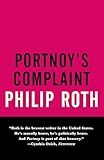 When my book club discussed Alexander Portnoy’s nearly 300-page potty-mouthed and hilarious rant a few years ago, one of our members said she’d like to read a novel called The Monkey Speaks, which would tell the story of Portnoy’s ex-girlfriend, the shiksa underwear model who used to earn more money in an hour than her “illiterate father would earn in a week in the coal mines of West Virginia.” I agree. I am dying to read a report from this “pathetic screwy hillbilly cunt,” perhaps one that includes a Rashomon-style retelling of her threesome with Portnoy and Lina, the Italian whore with, according to The Monkey, tremendous tits. Men aren’t the only ones who need analysts.
When my book club discussed Alexander Portnoy’s nearly 300-page potty-mouthed and hilarious rant a few years ago, one of our members said she’d like to read a novel called The Monkey Speaks, which would tell the story of Portnoy’s ex-girlfriend, the shiksa underwear model who used to earn more money in an hour than her “illiterate father would earn in a week in the coal mines of West Virginia.” I agree. I am dying to read a report from this “pathetic screwy hillbilly cunt,” perhaps one that includes a Rashomon-style retelling of her threesome with Portnoy and Lina, the Italian whore with, according to The Monkey, tremendous tits. Men aren’t the only ones who need analysts.
4. Sirena from The Woman Upstairs
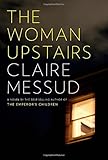 Claire Messud’s newest novel is like a Zoe Heller and Vladamir Nabokov mash-up, with its narrator — single, elementary school teacher Nora Eldridge — telling a circuitous and unreliable tale of her love for and obsession with the Shahids, a worldly and exotic family whose presence in Nora’s life magnifies how lonely, predictable and stale her days have become. At the center of the story is Sirena, the wife and mother in the family, whose success as an artist inspires, entices, and provokes Nora. If Sirena got her own novel, I’d of course long to hear her version of the events that Nora recounts with such fastidiousness. It would be more fitting and poignant, however, if Nora were barely present, meriting no more than a paragraph. And I’m sufficiently enamored of and repelled by Sirena to want a whole book with just her, her, her.
Claire Messud’s newest novel is like a Zoe Heller and Vladamir Nabokov mash-up, with its narrator — single, elementary school teacher Nora Eldridge — telling a circuitous and unreliable tale of her love for and obsession with the Shahids, a worldly and exotic family whose presence in Nora’s life magnifies how lonely, predictable and stale her days have become. At the center of the story is Sirena, the wife and mother in the family, whose success as an artist inspires, entices, and provokes Nora. If Sirena got her own novel, I’d of course long to hear her version of the events that Nora recounts with such fastidiousness. It would be more fitting and poignant, however, if Nora were barely present, meriting no more than a paragraph. And I’m sufficiently enamored of and repelled by Sirena to want a whole book with just her, her, her.
5. Richard from Treasure Island!!!
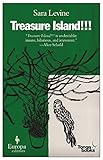 Sara Levine’s wickedly fun novel is narrated by an f-ed up young woman who leaves her job as a clerk at the Pet Library in order to pursue a life like Jim Hawkins’s in Robert Louis Stevenson’s classic novel. She steals the Library’s parrot (Richard) and proceeds to be ghastly toward her family, her boyfriend, and to the poor bird. Just because Richard repeats inane phrases like, “It’s big, it’s hot, it’s back!” doesn’t mean he doesn’t have a rich inner life worthy of a novel. By the book’s end it’s intimated that the bird has witnessed a lot, and, my lord, do I want to know what his little black beady eyes saw before he — oh, but I shouldn’t spoil the book for you if you haven’t read it.
Sara Levine’s wickedly fun novel is narrated by an f-ed up young woman who leaves her job as a clerk at the Pet Library in order to pursue a life like Jim Hawkins’s in Robert Louis Stevenson’s classic novel. She steals the Library’s parrot (Richard) and proceeds to be ghastly toward her family, her boyfriend, and to the poor bird. Just because Richard repeats inane phrases like, “It’s big, it’s hot, it’s back!” doesn’t mean he doesn’t have a rich inner life worthy of a novel. By the book’s end it’s intimated that the bird has witnessed a lot, and, my lord, do I want to know what his little black beady eyes saw before he — oh, but I shouldn’t spoil the book for you if you haven’t read it.
Image Credit: Wikipedia




